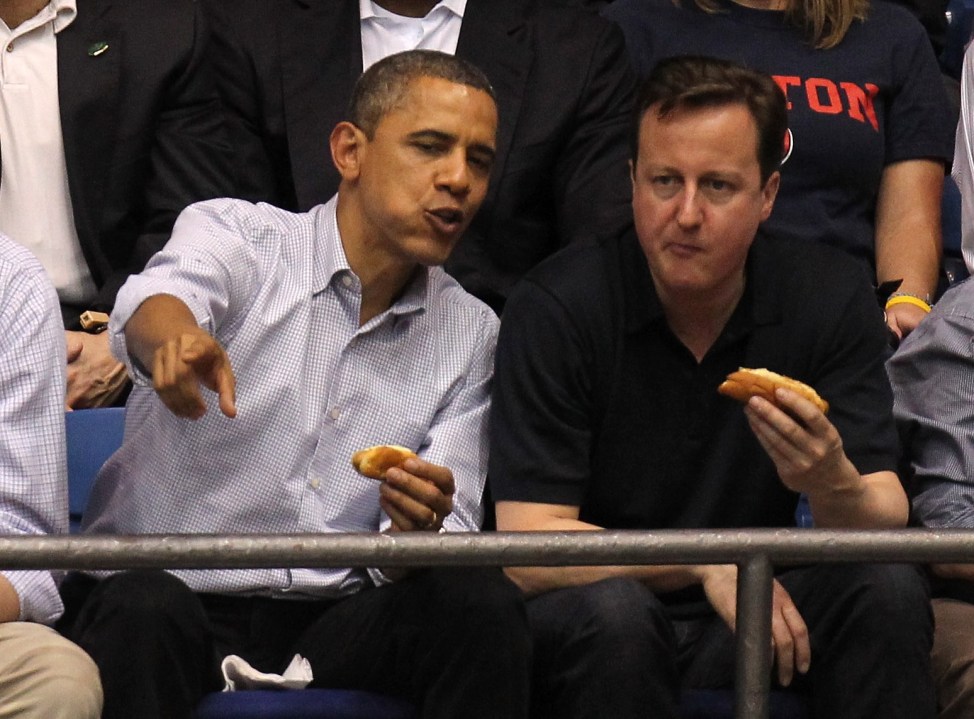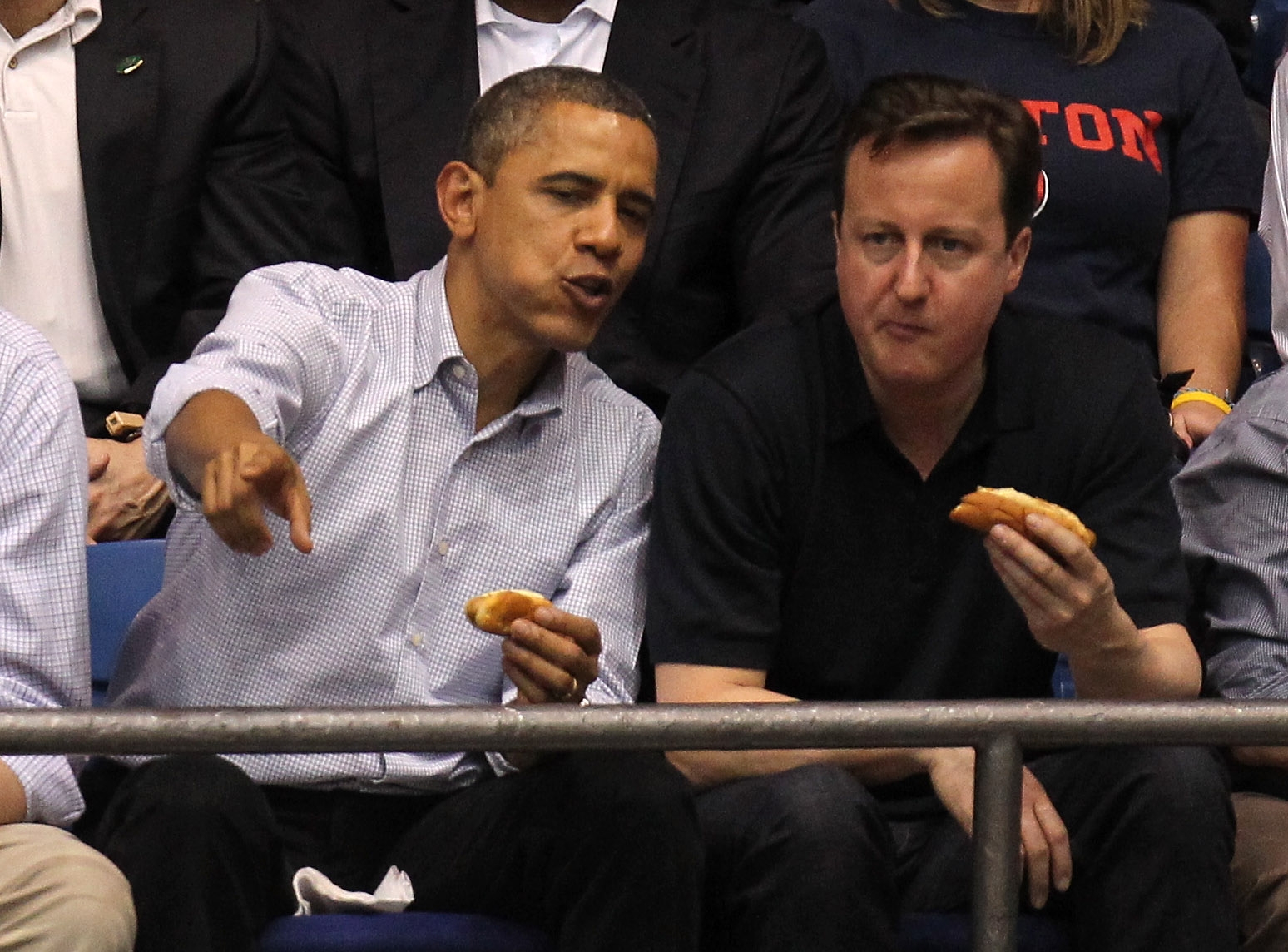So, we’ve had nearly a week to digest the results of the American election and contemplate what, if anything, it might all mean for politics there and, naturally, in this country too.
Let’s begin with a necessary caveat: the “read-across” from American elections to the British political scene is something that must be handled deftly. If considered with a sensible measure of proportion, however, it can be instructive since some of the challenges facing political leaders in Britain are comparable in kind (though not always in degree) to those faced by their cousins in the United States.
Demographics aren’t destiny and policy matters more than journalists sometimes liked to pretend. As Ross Douthat put it in a typically wise column:
What the [Republican] party really needs, much more than a better identity-politics pitch, is an economic message that would appeal across demographic lines — reaching both downscale white voters turned off by Romney’s Bain Capital background and upwardly mobile Latino voters who don’t relate to the current G.O.P. fixation on upper-bracket tax cuts.
The details differ but isn’t this something the Tory party needs to keep in mind too? Like the Republican party the Conservatives still need to work on ridding themselves of the perception they are a party who can be relied upon to over-privilege the interests of the already-wealthy. That perception limits their appeal in ways sectional and geographic alike. It damages the Tories with C1 and C2 “strivers” while also hampering their efforts to compete in the north of England (and Scotland). That’s why I still believe the Tory obsession with cutting income tax for the wealthiest Britons such a mistake even if it might make sense in strict economic terms.
Meanwhile there’s another line of thought, one excellently-expressed by Matt d’Ancona recently:
It is through this [heterodox] prism that gay marriage is best understood. Its opponents see it as, at best, a “metropolitan” distraction and, at worst, the mutilation of a sacred institution. But for a great many people – not just gays or the “metropolitan elite” – same-sex marriage has become a litmus test of civil equality: of the principle that we accord to others the rights that we enjoy ourselves.
Last week, Maine, Maryland and Washington state approved gay marriage in local referendums, and, in Minnesota, a constitutional amendment to outlaw same-sex unions was rejected. In America, a quiet cultural revolution is in progress. In Britain, the ferocity with which the Tory Right opposes gay marriage is much more off-putting than the moderation and calm generosity with which Cameron endorses it.
Quite so. The policy merits of gay marriage are for another discussion. Here we’re concerned with its political consequences. And these are this: gay marriage is not, electorally speaking, about homosexuals at all. It is about capturing straight votes, not gay ones.
The world has changed and changed rapidly. The emancipation of homosexuals (hardly too strong a term) across the western world these past few decades has been conducted at, in historical terms, breakneck speed. The journey may not yet be complete but the trends and the destination are clear for all to see. A person under the age of, say, 35, is surely much more likely to be aware of (and comfortable with) theirgay friends than were their parents when they were of a comparable age. These gay friends and acquaintances are out today and once out cannot be shoved back into the closet. Which is why a party that is perceived to dislike gay people will also find it more difficult to win support from gay people’s heterosexual friends.
Political preferences are not merely a question of weighing economic self-interest and plumping for the party you think most likely to advance them. Class interests still matter (despite what people sometimes claim Democrats depend, like Labour, upon the votes of poor people) but they are not perhaps as salient or predictive as once they were.
Politics is also a question of affiliation. It is a branding exercise in which your vote is a matter of cultural identification and solidarity. As a general rule (as always, the exceptions exist and matter) younger, well-educated voters are liable to distrust political parties that seem uncomfortable with the socially-liberal attitudes these younger, well-educated voters are more likely to hold than not.
Much the same applies to race. Again, the fact that race is a bigger issue in the United States does not mean it is no kind of issue at all in Britain. The Conservative party struggles to win support from black and other ethnic minority voters for some of the same reasons the Republican party faces such grave problems amongst Latino and African-American voters. Many of these voters don’t think the party actually likes them very much. These voters feel they are, at best, tolerated by the Tories (or the GOP) but rarely welcomed. They feel, if you like, that they are led to water but not allowed to drink.
Again, not every aspect of this critique is fair or even always accurate but it has consequences and those consequences ripple out beyond the votes of black and other minority voters to reach plenty of white voters too. In the Republican case, for instance, there’s a price to be paid for being – or being perceived to be – the Party of Rush Limbaugh and part of that price is that you’ll lose support amongst white voters who have no desire to be associated with either Limbaugh’s race-baiting extremism itself or a political party that connives and chuckles with that kind of talk.
It’s not enough any more and not good enough either. There are legitimate questions to be asked of the manner and extent to which race now plays such a huge part in the American high school curriculum but it has at least had the happy consequence of helping to expel overt racism from the political mainstream. Voters won’t put up with it any longer and, increasingly, I suspect they won’t indulge nod-and-a-wink racism either. If this is “political correctness” then what you mean by political correctness is actually simple human decency.
Decency and generosity and empathy and inclusiveness are necessary parts of any Big Tent approach to politics. In Britain and in the United States the cost of failing to pass those tests is losing the votes of people who might actually be sympathetic to your economic policies but cannot reconcile themselves to a politics they find boorish, ugly and off-putting. In the USA this causes problems for the GOP in states such as Virginia and, increasingly, North Carolina. In Britain, it makes life more difficult for Conservatives in London and parts of northern England.
As d’Ancona says the more stridently conservatives oppose these shifts the more they’ll seem like yesterday’s men. The nature and vehemence of that opposition will do as much to change minds as the merits of the issue itself. Consider this* historical parallel:
The Emancipation Proclamation and black military participation transformed the thinking of many white soldiers. Charles Wills, who enlisted as a private with the 8th Illinois and rose to be a lieutenant colonel with the 103rd Illinois, marveled at his own transformation. In summer 1863, Wills confessed, “I never thought I would, but I am getting strongly in favor of arming them [blacks], and am becoming so blind that I can’t see why they will not make soldiers. How queer. A year ago last January I didn’t like to hear anything of emancipation. Last fall accepted confiscation of rebel’s negroes quietly. In January took to emancipation readily, and now believe in arming the negroes.” Another soldier, Silas Shearer of the 23rd Iowa, had a similar experience. “My principles have changed since I last saw you,” he informed his wife. “When I was at home I was opposed to the medling of Slavery where it then Existed but since the Rebls got to such a pitch and it became us as a Military needsisity … to abolish Slavery and I say Amen to it and I believe the Best thing that has been done Since the War broke out is the Emancipation Proclimation.”
An extreme example? Perhaps. But the difference is, again, essentially of degree not kind.
Being seen to care is important. According to CNN’s Exit Poll 21% of voters thought the most important quality for a presidential candidate was that he be seen to “care about you.” Barack Obama won 81% of those voters. 44% of voters thought Obama’s policies “favoured the middle-class” and he won 86% of those votes. That helped give Obama the cushion he needed: Obama won 55% of the votes from the 45% of the electorate who admitted that they feel the national economic conditions are “not so good”. That was a reflection, I think, of comfort and a hesitant but appreciable level of trust. Here too we may perceive some of the challenges that David Cameron will face in the second half of this parliament.
It is, of course, tricky. There’s not too much immediate upside in being too far ahead of public opinion but the penalty for that may not be as great as that imposed for lagging too far behind it. The country – and the culture – is changing and conservatives, of all people, should appreciate that and recognise that since this is the case the argument for a modern, moderate, empathetic conservatism is made stronger, not weaker by these changes. Now More Than Ever, you might say but not in quite the same fashion as your parents or grand-parents understood conservatism. Times change which means conservatism changes too.
*Link via Andrew Sullivan.








Comments